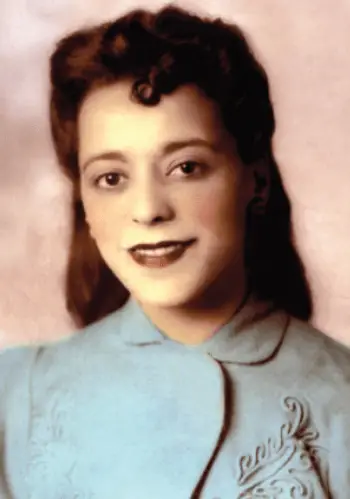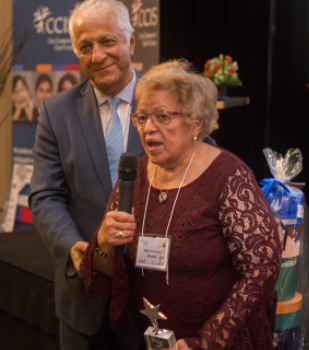International Women’s Day is a day to recognize women’s achievements and acknowledge the challenges they continue to face in the quest for gender equality. Officially adopted by the United Nations in 1975, it was first recognized back in1909 in New York. IWD was initially popular throughout socialist movement groups and communist countries, particularly after women gained the right to vote in the Soviet Union in1917. In 1910, Clara Zetkin of the “women’s office” for the Social Democratic Party in Germany, became the first person to table the idea of an International Women’s Day. Later that year, 100 women from 17 countries gathered to formally establish International Women’s Day, which was first marked in 1911. Since 1913 International Women’s Day has taken place each year on March 8th. It is meant to be a day of joy, when women celebrate their triumphs and successes. It is also a time to shine a light on the issues that so many women still face; domestic violence and attacks on reproductive rights. We invite you to celebrate the women in your life.
MARI-CARMEN MACIAS | 20 Year Volunteer
In 1985, Mari-Carmen left her home in Nicaragua and travelled to Canada, Calgary specifically. Her arrival has been a very positive experience for CCIS. Mari-Carmen has been an active member of the Seniors Community Consultation Committee, she can often be found organizing events and encouraging others to participate or attend. Her input and feedback have been invaluable and have shaped the way many of our events are presented and promoted within the community. She is well respected amongst her peers and she is always willing to connect with other seniors in her community, in groups or individually, and referring them to CCIS. In 2015 she was honored with the Immigrant Seniors Award. This past December, we were pleased to present Mari-Carmen with her 20-year recognition award. Thank you, Mari-Carmen for all your years of incredible service.

VANISHA CHETTY | Fashion Designer/Business Owner
Many of Vanisha’s earliest memories centre on her mother’s sewing machine and how she loved to make it run, not realizing that she was often turning knobs and dials that were not meant to be turned! Her love of fabric and design found her hand stitching clothing for her dolls and a whole lot of arts & crafts! Working in a clothing factory in Fiji, at the age of 10, (child labour being commonplace) Vanisha was given the task of trimming the seams and cutting threads. From there she was “promoted” to fixing the mistakes of others. At 65 cents per hour, the time spent in the factory gave Vanisha the opportunity to learn the operations of the factory, and more importantly the clothing business. Following 10 years as a hairdresser, Vanisha moved to Canada in 2011. Her skills allowed her to start a home-based alteration service. Two and a half years ago, Vanisha combined her love of sewing and design to start her own design company while also paying the bills as a tailor. For more information, visit Vanisha Chetty Collection on Facebook.

VIOLA DESMOND | Game Changer & Social Activist
Born in 1914 and raised in Halifax, Viola Irene Desmond was trained as a teacher, but soon joined her husband Jack Desmond in a combined barbershop and hairdressing salon. While expanding her business across the province, Viola went to New Glasgow, Nova Scotia in 1946.
In New Glasgow, Viola had car trouble and decided to go to the movie while repairs were made. She bought a ticket, entered the theatre and took a seat on the main floor, unaware that tickets sold to African Canadians were for the balcony and the main floor was reserved solely for white patrons. Theatre staff demanded that she go to the balcony, but she refused. The police were summoned, and she was dragged out, injuring her hip and knee. She was charged and held overnight in jail. Shocked and frightened, she maintained her composure and sat bolt upright all night long.
Despite the efforts of the Nova Scotian black community to assist her appeal, Viola Desmond was unable to remove the charges against her and went unpardoned in her lifetime. Viola’s courageous refusal to accept an act of racial discrimination provided inspiration to later generations of black persons in Nova Scotia and in the rest of Canada. The case touched a nerve not just within the black community but added to the growing consciousness regarding racial discrimination. She was an inspiration for change, and her small act of defiance paved the way for a broader movement to recognize the importance of human rights in Canada. In 1954, segregation was legally ended in Nova Scotia thanks in large part to the courageous determination of Viola Desmond and others like her who fought to be treated as equal human beings. As a point of interest, Viola’s pioneering stance occurred nine (9) years prior to the stand Rosa Parks took on that bus in 1955.
In 2010, Lieutenant-Governor Mayann Francis issued Viola a free pardon. In December 2016, the Bank of Canada announced that Viola Desmond would be the first Canadian woman to be featured on the face of the $10 bill, which was released in November of 2018. Also, that year, Viola was named a National Historic Person by the Canadian government. Though the events at the Roseland Theatre are behind us, Viola’s struggle for social justice and her singular act of courage stirred the civil rights movement in North America in 50’s and 60’s and continues to touch the hearts of Canadians to this day.




